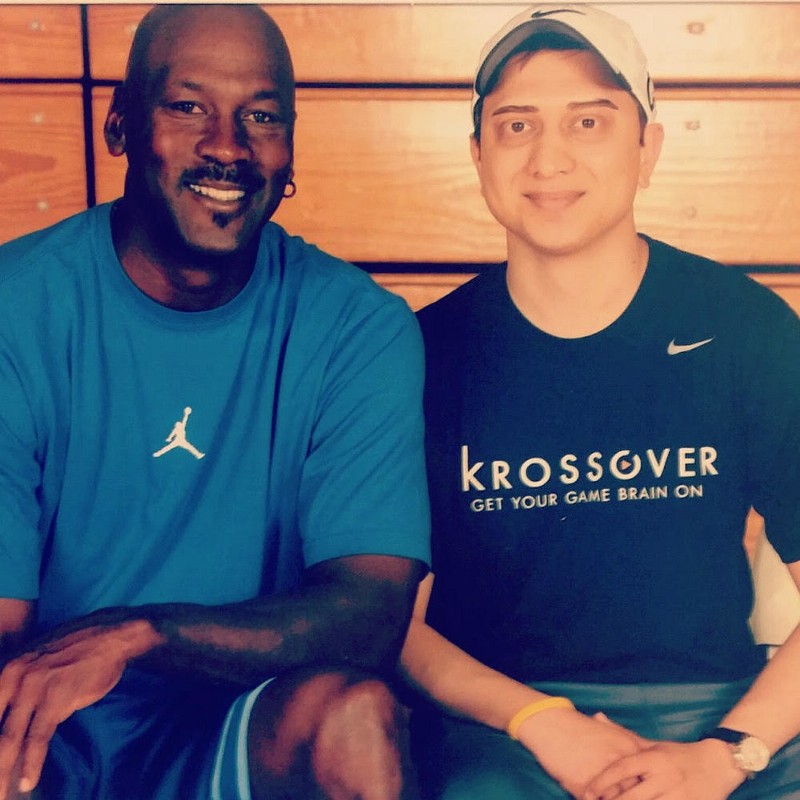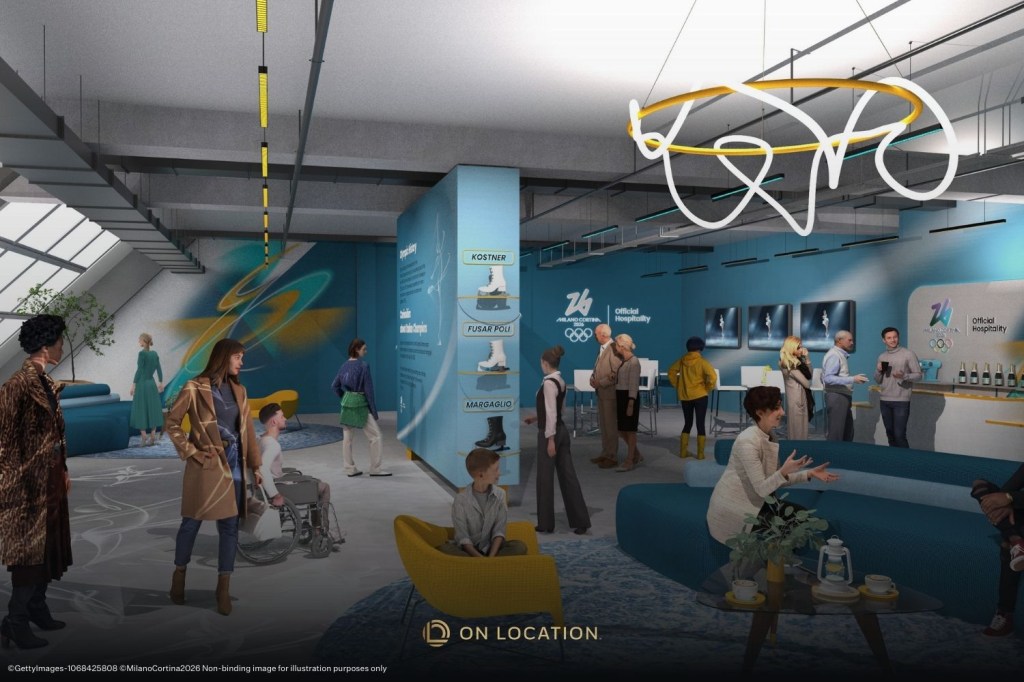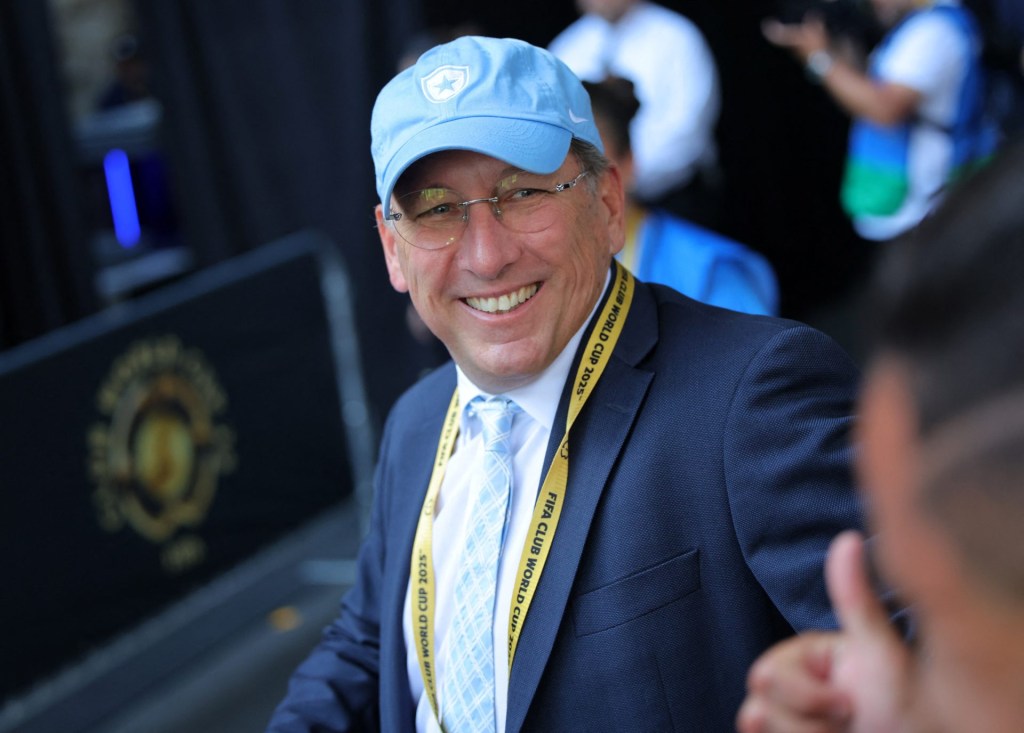This interview is presented to you by the University of Nebraska — Lincoln Master of Arts in Business with a Specialization in Intercollegiate Athletics Administration
By: DaWon Baker, @dawonbbaker

Vasu Kulkarni proclaims a few things to be true about him. One of those things is his love of sport, particularly basketball.
“It’s my self-proclaimed love. I say it jokingly, but I really love basketball.”
Kulkarni claims that he, “loves basketball more than anyone loves anyone or anything.”
Kulkarni was born in India and spent time growing up in both India and the United States. “I just fell in love with the game at about 3–4 years old.”
Kulkarni explained how despite only being able to watch NBA basketball two days a week, it was enough.
“I grew up during a boom of NBA basketball in the 80’s and 90’s. Obviously Michael Jordan played a big role in that, but I would wake up at 5:30 a.m. on Friday and Saturday mornings to watch NBA games, which was the broadcast time in India. My parent’s said that I wouldn’t get up for anything else at 5:30, not school or anything, but if it was NBA basketball, I was up. My dad used to travel to the United States for business and I had my family over in the United States tape games for me. I watched the NBA games with them whenever I traveled to the states. My dad brought tapes back to India for me to watch.”
Like many young kids, he had dreams of an NBA career, but they fell short once he went off to the United States and studied at the University of Pennsylvania.
“I played JV basketball at Penn, but I just loved to play, I wanted to stay around the game for as long as I could, so I earned a walk-on spot during my senior year.” Despite being a good player in India, he knew his career wouldn’t go to the pro level.
“That’s one thing I wish I would’ve known early. Basketball, and sports in general, require a lot of gifts, God-given gifts even. Yes, working hard is important, but you need so many gifts to be considered one of the best in the world. The NBA has around 400 guys at any time. To be one of the best 400 guys in the world in what you do is something that is amazing, so I realized that late and wish I would’ve known earlier.”
Despite his lack of an NBA career, Kulkarni used his love for hoops to develop something else that kept him around the game of basketball, Krossover Inc. He not only used his entrepreneurial spirit to build Krossover, he used it to pay his way through college.
“I have been selling stuff since I was five years old. That’s what I did growing up. I paid tuition by selling stuff on eBay. I sold concert tickets. I would buy something out of the store at a 15 percent discount, sell it on eBay for a five percent discount, and make a 10 percent margin. I used that money to pay my tuition.”
After graduating from Penn in 2008, he wanted to work in basketball.
“I wanted to work in basketball, I applied to Nike and the NBA. I even wrote a letter to David Stern and told him I should be his commissioner for NBA India, we’ve met before and I told him jokingly that I’m glad he didn’t hire me because I probably wouldn’t have founded Krossover.” He launched Krossover Inc. in 2009
Krossover Inc. is an analytic and video catalog company, focusing on the sport industry. It uses a number of tools, including statistics and data analytics to break down film for coaches and players. It is not just a basketball tool, but is also used other sports such as volleyball, lacrosse, football and more. Krossover has been listed as one of the 500 fastest growing companies in America and has taken big strides in the industry. He’s worked with thousands of schools and has even scored investments from NBA owners. With Krossover, Kulkarni saw the perfect opportunity for innovation, entrepreneurship, technology and basketball to come together as one.
“I love the lifestyle. I can still play hoops every day at noon and still get 18 hours of work done because I love what I do.”
For his future goals, Kulkarni has a few things up his sleeve.
“The dream is to own an NBA franchise, but only 30 people get to do that. For Krossover, I think it would be cool to eventually have a one-stop shop and a turnkey type of company that can supply all of your data and analytical needs in one place. That would take a number of mergers, but I think that would be good to see in the future, there aren’t any companies I have seen do something like that in the sport industry. If that doesn’t work-out, I would love to work with Krossover until the day I die, but I imagine I may have to sell one day and I’m ok with that.”
Despite his love for basketball, Kulkarni has a number of things he keeps his hands in. He serves as an investor with Courtside Ventures and is always thinking about his next venture.
“If I was not doing Krossover, I probably would have found another problem or opportunity in technology and solved that. I thought of coaching, but I wasn’t willing to sacrifice to get to the point of coaching and it wasn’t enough of a reward. It’s rewarding to help the youth, but the lifestyle wasn’t for me, I’ve always been interested in starting something myself, I never was a 9–5 type of guy.”
Kulkarni plans to start more companies and help with more start-ups in the future. But when it comes to his passions, he has a few things that get him going.
“I love entrepreneurship, innovation and technology because I like the psychological effect of having something new, a shiny new toy. It’s like Christmas morning; the excitement is there because it’s something new and fresh. I love to open a box with a new gadget. I’m that guy who is in line to get every new Apple release, because I love the technology side that much. I’m an early adopter. I understand the technology and it fascinates me. I’m an engineer and I have an appreciation for that. I’m a big fan of mechanical watches because it’s amazing to me that someone can think of something as intricate and detailed as how a watch moves and put it into something that’s 3–5 millimeters thick, and have the idea of how to move time in your head and put it into something is amazing to me.”
Being someone who appreciates technology and innovation, Kulkarni thinks augmented reality is the next big thing in the sporting industry.
“A lot of people are high on virtual reality right now, but I think augmented reality is going to be huge. To be able to have on a pair of glasses that changes your entire scenery or landscape is cool. Imagine being able to go to a game that’s in Oracle Arena, but you live in Cleveland. Instead of paying $5000 to go to a game 7, you pay $100 to go to the game if you live in Cleveland, and go to their arena, and with augmented reality, you sit in the seats and have all of the same action and sensory feelings of being at the real game in Oracle. That definitely excites me for the future. We probably won’t be there in the next year or two, but I’m excited to see it.”
While Kulkarni has achieved a lot of success, he has had some bumps on his path as well.
“There are a few things I would do differently, I probably wouldn’t have started my business in New York, the cost of living is too high and I could’ve achieved what I do with Krossover elsewhere. I have a friend of mine who has a business in Kansas City, with a basketball court in his building, but his rent is 1/7 of mine. That type of planning and knowing that would have helped me. I would advise younger entrepreneurs to know their location. I would advise entrepreneurs to know their funding as well, unless you are the next huge thing, capital ventures may not be for you. Risk is always involved. I know one day I may not get all of my money back from Krossover. I may compare what I earn at Krossover to what someone on Wall-Street makes over a 10-year span and it may not be close, but at the end of the day, this has been the best time of my life and I’m thankful for that.”
Kulkarni describes the sport industry in three words.
“Fulfilling and Shocking.”
“I say that because every kid who’s a sports fan wants to work in sport, but it’s not always a dream job, you would be shocked how unfulfilling that job is for most people. Most teams know that 100 people are lined up for that job, they don’t have to pay you well, and it’s not a fun job. But you love sport, or that team so you will do it no matter what. Do the job because it’s fulfilling, but it’s shocking how often people are not fulfilled in that position.”
Passion has definitely been a re-occurring theme in Kulkarni’s journey, and he urges the next generation to use the same.
“Sport is not something you get into for the money. Players make all of the money; you have to do it because you love it. I have people on my staff that I genuinely feel that they enjoy being there and they have had previous jobs in sport that they hated because it was not what they thought it would be. Find your passion, and don’t work in sport because you want to go to the games, that’s not the case in this industry. Do it because you love it.”
Kulkarni uses his passion everyday, something we can all learn from and model in our everyday work. Check out his website, Twitter and the Krossover website!

This interview was presented to you by the University of Nebraska — Lincoln Master of Arts in Business with a Specialization in Intercollegiate Athletics Administration
















